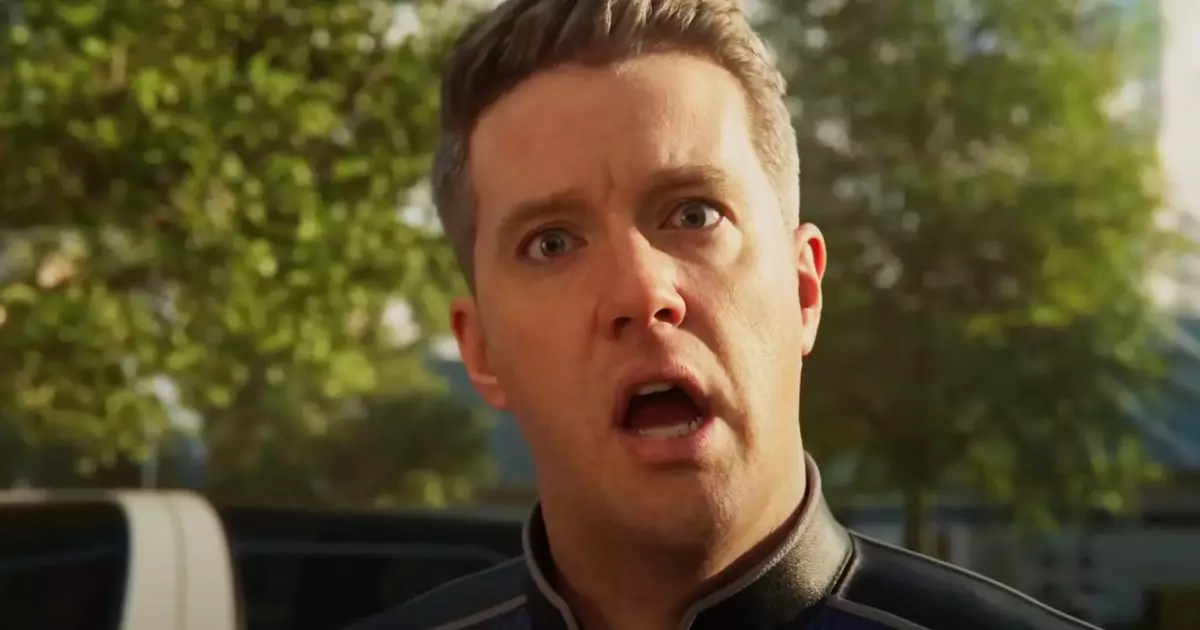Helldivers 2’s latest in-game directive reveals an unapologetically intense and provocative approach to gaming, framing the ongoing conflict as a moral and psychological battleground. Rather than a mere game update, it becomes a commentary on the brutal realities of modern warfare and the societal impact of relentless violence. The developers, Arrowhead, are clearly daring players to confront the uncomfortable truths that come with their battles, emphasizing that victory is not just about defeating enemies but about restoring a fragile sense of security among the populace.
This shift towards aggressive storytelling displays a willingness to challenge players’ notions of heroism. Instead of traditional heroics rooted in protection and compassion, Helldivers 2 pushes for a narrative where the line between right and necessary becomes blurred. By tasking players with the extermination of millions of enemies—creatures that embody nightmares—Arrowhead essentially posits that realism in warfare often involves uncomfortable, even brutal, choices. The game’s core message rings loudly: sometimes, survival demands relentless, unyielding action, and moral hesitation can be a liability in a universe torn apart by chaos.
Satire as a Reflection of Reality
The tone of Helldivers 2’s latest orders employs sharp satire, transforming serious military logistics into dark comedy. The listing of enemy types and kill counts amidst a backdrop of societal fear feels less like a straightforward military campaign and more like a satirical critique of government propaganda and the performative nature of public safety crises. The game’s narrative amplifies the absurdity of official narratives that often prioritize spectacle over substance, highlighting how governments may escalate violence to placate public fears—often with little regard for moral implications.
The names of the new security cities—Fort Union, Fort Sanctuary, and Emeria—are intentionally bland, underscoring the game’s tongue-in-cheek critique. They evoke a sense of strategic repetition and the dehumanization of urban planning amid chaos. When the game orders players to slaughter millions of specific enemies, it subtly draws a parallel to real-world scenarios where governments mobilize their citizens in campaigns that are as much about psychological control as military necessity. Helldivers 2 becomes a mirror, reflecting how media-driven fear can justify extreme measures, and it dares players to consider the moral cost of these actions.
Engagement Through Rewards and Cultural Layers
Amidst the chaos of order and destruction, Arrowhead offers players tactile rewards and cultural references that deepen engagement. The introduction of a free cape—a vibrant purple adorned with Braille patterns spelling “DCON DCON”—serves as more than just a cosmetic perk. It is a tangible acknowledgment of community participation in the game’s layered storytelling, specifically those who took part in the Station-81 alternate reality game (ARG). This layer of cross-media storytelling exemplifies how modern games increasingly intertwine narrative, player interaction, and cultural commentary.
The ARG itself, woven into the fabric of Helldivers 2, exemplifies how modern gaming transcends traditional boundaries. It blurs lines between the game universe and real-world engagement, creating a shared cultural event for players. The inclusion of cryptic references to DCON—evoking military alert levels and sci-fi lore—further enhances the game’s satirical tone, suggesting that even in the midst of chaos, there’s room for playful mystery and community bonding. It reflects an understanding that players are not just passive consumers but active participants in a story that comments on the complexities of warfare and society.
Critical Perspective: A Reflection of Modern Warfare’s Ethical Dilemmas
From a critical standpoint, Helldivers 2’s recent narrative developments serve as a bold commentary on the ethical dilemmas inherent in conflict. It forces players to reckon with the idea that warfare, especially in a sci-fi context, often involves morally questionable decisions cloaked in patriotic rhetoric. The game’s emphasis on killing millions of enemies, many of whom symbolize societal fears, challenges the traditional notions of heroism and questions the price of security.
However, this approach also raises concerns about desensitization to violence. When the game aggressively promotes mass slaughter as the only solution to societal unrest, it risks trivializing the true human cost of conflict. While satire and exaggeration have their place, Helldivers 2 walks a fine line—encouraging players to reflect on the absurdity of certain wartime narratives while risking the normalization of brutal, indiscriminate violence. The game appears to implicitly endorse a worldview where victory is cheap and morality is secondary—the very kind of perspective that can desensitize players to the complexities of real-world conflicts.
Helldivers 2’s latest update is more than a gameplay directive; it’s a provocative mirror held up to modern society. It challenges players to consider the implications of brutal tactics, the manipulation of fear, and the costs of security. By combining satire, reward-driven engagement, and a gritty narrative, the game compels us to reflect on the true meaning of heroism in a universe where the line between defender and aggressor is blurred beyond recognition.


Leave a Reply